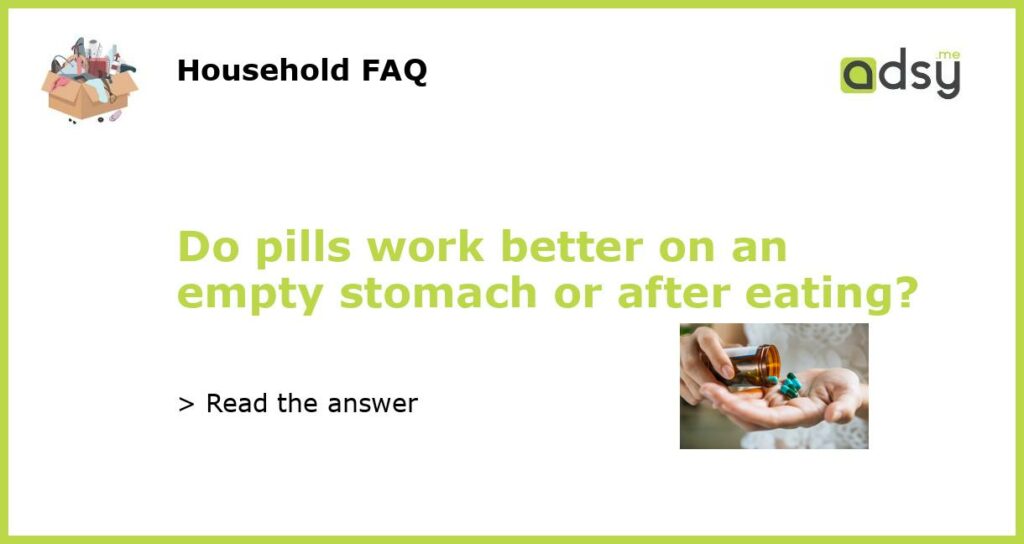Understanding the Importance of Dosage Timing
When it comes to taking medication, timing can be crucial. Whether it is prescribed medication or over-the-counter supplements, the question of whether to take pills on an empty stomach or after eating is a common concern. The truth is that the answer may vary depending on the specific medication or supplement, as well as individual factors. Let’s dive into the reasons why timing matters and explore the potential benefits of taking pills on an empty stomach versus after eating.
Absorption and Bioavailability Factors
One of the main reasons why timing can impact the effectiveness of medication is related to absorption and bioavailability. When you take a pill, it needs to be broken down and absorbed by your body in order to have the desired effect. Certain medications are better absorbed when taken on an empty stomach, as the absence of food in the digestive system allows for quicker and more efficient absorption into the bloodstream.
For example, certain antibiotics like tetracycline are known to have reduced absorption when taken with food, particularly if the food contains dairy products or calcium-rich ingredients. On the other hand, some medications require food to enhance absorption or reduce potential gastrointestinal side effects.
Medications that Should Be Taken on an Empty Stomach
There are specific types of medications that are commonly recommended to be taken on an empty stomach. This is typically because food can interfere with their absorption and reduce their effectiveness. Some examples include:
- Thyroid medications: These are often prescribed to individuals with hypothyroidism. Taking these medications on an empty stomach, at least 30 minutes before eating, is crucial to ensure proper absorption.
- Bisphosphonates: This class of medications is commonly used to treat osteoporosis. It is recommended to take them on an empty stomach with a full glass of water, at least 30 minutes before consuming any food or drink (except water).
- Iron supplements: Iron is another nutrient that is better absorbed on an empty stomach. However, some individuals may experience stomach upset, so it is advisable to follow the guidance of a healthcare professional.
Medications that Should Be Taken with Food
On the other hand, there are medications that are better absorbed when taken with or after a meal. These medications often come with specific instructions that stipulate taking them with food to reduce gastrointestinal side effects or increase absorption. Some examples include:
- Nonsteroidal anti-inflammatory drugs (NSAIDs): These medications, such as ibuprofen or naproxen, are commonly used to reduce pain and inflammation. They are known to cause stomach irritation, so taking them with food can help minimize these effects.
- Medications that may cause nausea or upset stomach: Some medications have a higher likelihood of inducing gastrointestinal discomfort. Taking these medications with food can help reduce these side effects. Consult a healthcare professional for specific recommendations.
What Should You Do?
Ultimately, the best course of action is to always follow the instructions provided by your healthcare professional or the medication packaging. If you are unsure about whether to take a pill on an empty stomach or after eating, consult with a healthcare professional or pharmacist. They can provide specific guidance based on your medication and individual factors.
It is also worth noting that certain medications and supplements may have unique requirements that differ from the general guidelines. Always read the medication label or consult a healthcare professional for any specific instructions related to the particular medication or supplement you are taking.
Remember, the goal is to ensure that your medication or supplement is absorbed optimally and reaches its intended target in your body. Following the recommended dosage timing can help increase the efficacy and reduce potential side effects of the pills you take.






